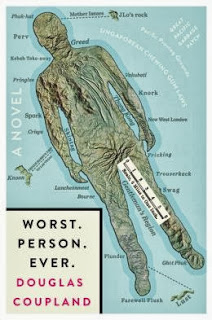Adam Roberts
The Riddles of The Hobbit author Adam Roberts is Professor of Nineteenth Century Literature at Royal Holloway University, London.

GB: What inspired you to write this book? What do you hope readers take away from their reading experience?--Marshal Zeringue
Prof Roberts: I have been a reader and lover of Tolkien from a very early age. He’s one of the reasons why I wanted to become a writer myself. As an academic I have also written literary-critical or scholarly stuff on his books, although most of the criticism I read is geared to the Lord of the Rings. My starting point for this book was a desire just to look in more detail at The Hobbit, and more specifically to challenge the idea that it is somehow a ‘simple’ or even a ‘trivial’ book compared to the much larger, more involved Lord of the Rings. I don’t think that’s right. Of course The Hobbit *is* a shorter and more linear book than Lord of the Rings, but that doesn’t mean it is in any sense simpler. The riddle struck me as one of the ways I could approach the text to start to explore its complexities.
GB: What do you find most appealing about Tolkien’s writing and the world he created?
Prof Roberts: This is a hard question for me to answer — Tolkien goes so far back with me, personally, and is so intimately entwined about my own developing imagination. There’s a bad aspect to that fact: loving this writing as deeply as I do, it’s hard for me to get a critical distance upon it. Still, it ought to be possible for me to answer your question without evasion, of the ‘love is blind’ kind! So: I’d say that when I was a kid what I loved about these books was simply the transport of the imagined world, the escapism of it. Now that I am no longer a child, do not see as a child and have put away childish things, I find myself drawn (to speak very broadly) to other aspects of the work: and in particular to Tolkien’s twin concerns, which are surely absolutely central to his vision with language on the one hand, and with importance of ethical choice on the other. These things, combined with something else Tolkien understands — that even the most seemingly mundane or trivial lives have, as it were, epic underpinnings — are also core to Joyce’s Ulysses. For example.
GB: In your book, you discuss the attraction people find for riddles and mysteries and how this attraction is reflected in Tolkien’s work. How do you believe this has impacted the both the international and lasting appeal of a book originally marketed to British children?
Prof Roberts: Kids love riddles; but...[read on]






























